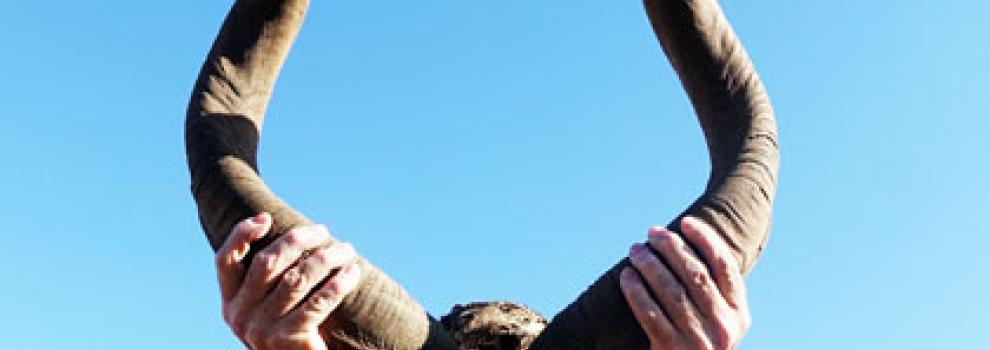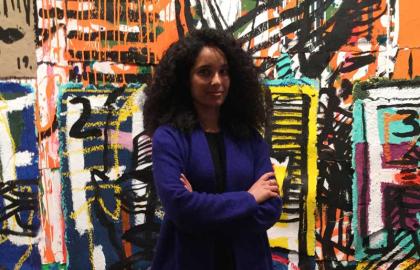
ART TALK WITH KENDELL GEERS (BE)
Past event
Cancelled
Postponed
4 Feb.'17
- 20:00
AFROPOLITAN FESTIVAL
AFROPOLITAN CONTEMPORARY ART
Kendell Geers was born in South Africa and now lives and works in Brussels. At the 1993 Venice Biennial he officially changed his date of birth to May 1968, a momentous year in world history for human liberation and equality. Geers creates work that aims to disrupt commonly accepted moral codes and principles. Employing a wide range of references- from the realms of history of art, pornography, iconography and kitsch- Geers questions artistic value and mocks the notion of originality. His work reveals razor-sharp humour that plays with the viewer's repulsion and ridicules racial or religious stereotypes. Laden with complex and deep political implications, it is challenging and confrontational. At the same time, Geers' minimalist aesthetics generate a subtle poetic undertone. His use of language, ready-mades, neon, glass, icons, film, chevron tape and other objects confront the viewer head on. They often startle the eye and require a degree of interrogation from the spectator. Kendell Geers has exhibited extensively around the world with a recent major retrospective of his work ‘Kendell Geers 1988-2012' taking place at Haus der Kunst, Munich, Germany (2013).
The Nigerian writer Chinua Achebe fondly quoted the Igbo proverb “Anaghi a no n'otu ebe e kili mmonwu” (You cannot stand in only one place to watch a masquerade) as a metaphor for understanding African Art. He explains “I believe in the complexity of the human story and that there’s no way you can tell that story in one way and say, ‘This is it.’ Always there will be someone who can tell it differently depending on where they are standing; the same person telling the story will tell it differently. I think of that masquerade in Igbo festivals that dances in the public arena. The Igbo people say, If you want to see it well, you must not stand in one place. The masquerade is moving through this big arena. Dancing. If you’re rooted to a spot, you miss a lot of the grace. So you keep moving, and this is the way I think the world’s stories should be told—from many different perspectives.”
African Art is a living tradition that cannot be disconnected from its context and remains a vital force of spirit. It is a philosophy that cannot separate the mask from the masked, cannot take the dancer out from the dance which cannot be stopped until the rite has been written. The masquerade cannot be read outside of the community upon whose faith it emanates from. The very same holds for any work of art, but the familiarity and habit of the Western European convention is often overlooked and misread as universal. The history of African Art is intertwined within the context of its contradictory histories, the complexities of its politics, identities, communities, struggles and culture in general. The AK47 is as integral to African identity as the mask, wax print fabric and mobile phone and yet these incongruous elements are rarely understood as inextricably interconnected.
Invited Artists:
Larry Achiampong (London),
Bianca Bondi, Paris
Steven Cohen, Lille
Leonard Pongo, Brussels
Barthélémy Toguo, Paris
Leonard Pongo
Léonard Pongo graduated from Maastricht University with a BA in Social Sciences. During and a er a training in documentary photography, Pongo worked in Eastern Europe, the Balkans, and is currently focusing on South-East Asia and Congo DR. His long term project “The Uncanny” started in Congo DR in 2011 has earned him several awards and international recognition. His work is featured in the Guardian, CNN, and several online publications and earned him the Vocatio scholarship in 2016. Pongo is also a tutor at Obscura festival since 2015.
His latest project - "The Uncanny" (Congo DR 2011 – ongoing) - is an experience of daily life in several neighbourhoods of DRC’s main cities. It is carried out by photographing families, local TV, political figures and church leaders and followers. This work shows a different side to the Congolese story: one of people living in the country’s urban neighbourhoods, far from the catastrophes and faced with different challenges. Instead of focusing on the country’s infamous crises and conflicts, it questions the country’s existence away from the episodic flashpoints of war and the conflicts brought up by experiencing this reality. For a place that is so often seen through images of devastation and disaster, this series offers an intimate, inside view of Congo: private moments captured for their emotional meaning.
Steven Cohen
Steven Cohen is a performance artist who stages interventions in the public realm and in gallery/theatre spaces. His work invariably draws attention to that which is marginalised in society, starting with his own identity as a gay, Jewish, white South African man.
Larry Achiampong
Achiampong (b. 1984, UK) completed a BA in Mixed Media Fine Art at University of Westminster (2005) and an MA in Sculpture at Slade School of Fine Art (2008). He lives and works in London. Larry Achiampong's solo and collaborative projects employ imagery, aural and visual archives, live performance and sound to explore ideas surrounding class, cross-cultural and post-digital identity – in particular, dichotomies found within a world dominated by social media and digital frameworks. With the enduring expansion and sharing of information via the Internet, the idea of a one-size-fits-all version of history, as previously dictated, continues to be eradicated. At the heart of this phenomenon lies Achiampong’s increased interest in what new truths or versions become available, the multiple possibilities that are created and maintained in the digital realm and the consequences related to ‘IRL’ or ‘In Real Life’. Achiampong crate-digs the vaults of history, splicing audible and visual qualities of the personal and interpersonal archive-as-material - offering multiple dispositions that reveal the socio-political contradictions in contemporary society.
Achiampong has exhibited, performed and presented projects within the UK and abroad including Tate Britain/Modern, London; Hauptbahnhof (dOCUMENTA 13), Kassel; The British Film Institute, London; Modern Art Oxford, Oxford; New Art Exchange, Nottingham; SAVVY Contemporary, Berlin; Bokoor African Popular Music Archives Foundation, Accra; and The Mistake Room, Los Angeles. He recently presented his debut international solo show titled OPEN SEASON at Logan Center Exhibitions (Chicago). Achiampong is currently artist in residence at Somerset House Studios (London). He will be presenting artwork in the Diaspora Pavillion at the 57th Venice Biennale.
Bianca Bondi
With a multidisciplinary approach that is often site-specific, Bianca Bondi’s practice being very much process based, is a blending of material experiment and method. Working with a non exhaustive list of ingredients such as copper, resin, beeswax, salt, latex and various chemical solutions, the materials are chosen for their potential for transformation; resulting in entirely strange and new surfaces. Her work process can be likened to ritual practice or a sort of instinctive alchemy in the promotion of mutation and ultimately in poetic dissolution. She correlates these organic combinations to various current situations flirting with spiritual, psychological, and social subject matter while always honoring the intangible
Barthélémy Toguo
Barthélémy Toguo was born in Cameroon in 1967. He lives and works in Bandjoun and Paris.
He studied at the Ecole Nationale supérieure des Beaux-Arts, Abidjan, at the Ecole Supérieure d'Arts in Grenoble and the Kunstakademie in Dusseldorf. He is a Chevalier des Arts et des Lettres of the French Republic; a multidisciplinary artist who exhibits throughout the world. In 2008, he created Bandjoun Station, a place of residence and artistic exchange on the mountain plateaux in the west of Cameroon.
